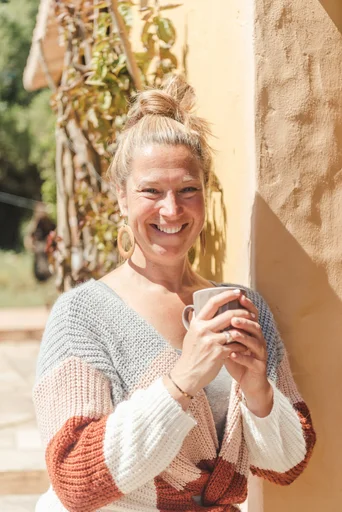5 Simple Ways to Be Present

Introduction to Being Present
In today's fast-paced world, the concept of being present holds significant importance for our overall well-being. But what does it really mean to be present? This state of mind involves fully engaging in the current moment, free from distractions and preoccupations about the past or future. It's about embracing the here and now with a sense of awareness and mindfulness.
Why It's Important to Be Present
The benefits of being present extend beyond just mental clarity; they also have profound effects on our physical health. Studies have shown that mindfulness meditation can decrease stress, anxiety, and depression while boosting the immune system and improving sleep quality. Additionally, being present has been linked to improved self-awareness, productivity, and work engagement. These findings are supported by research that suggests being present decreases stress, abrupt changes in mood, and enhances personal relationships and empathy.
What Does It Mean to Be Present?
Understanding the concept of being present involves recognizing its impact on our daily lives. By focusing on the present moment, individuals can experience heightened concentration, memory retention, reduced stress and anxiety levels, as well as faster healing processes. Moreover, mindfulness practices may affect the functioning or structure of the brain in positive ways.
1. Simple Ways to Focus on the Now
Incorporating simple practices into your daily routine can significantly enhance your ability to focus on the present moment. By starting your day with intention and practicing gratitude, you can cultivate a mindset of mindfulness and awareness.
Start Your Day with Intention
Begin each morning by setting daily goals that align with your aspirations and values. This intentional approach allows you to direct your energy towards meaningful endeavors, fostering a sense of purpose and fulfillment throughout the day. Consider jotting down a few key objectives or affirmations to guide your actions and mindset. By doing so, you establish a clear path for personal growth and productivity, promoting a proactive attitude towards the day's activities.
Practice Gratitude
Keeping a gratitude journal is an effective way to acknowledge the positives in your life and nurture a sense of appreciation for everyday experiences. Reflecting on moments of joy, acts of kindness, or personal achievements can help shift your focus towards optimism and resilience. By expressing gratitude for the small things, you can elevate your overall well-being and develop a more positive outlook on life. Consider using prompts or ideas from apps to expand your gratitude practice and explore new avenues for self-reflection.
Personal Experience:
Taking a few minutes each day to reflect on the positives in my life has truly helped me appreciate the small things and discover joy in my daily routines. In short, gratitude journaling has revolutionized my life.
Personal Insight:
More than anything, I think that gratitude comes from self-reflection, self-awareness, and approaching life with intention.
By integrating these simple practices into your daily life, you can foster a deeper connection with the present moment while nurturing a positive mindset that enriches both your mental and emotional well-being.
2. How to Use Your Senses to Be Present

Incorporating your senses into the practice of being present can significantly enhance your experience and deepen your connection with the present moment. Engaging your senses allows you to fully immerse yourself in the here and now, fostering a heightened state of mindfulness and awareness.
Engage Your Senses
To start, consider the five primary senses: Sight, Sound, Touch, Taste, and Smell. Each sense offers a unique pathway to experiencing the world around you. By consciously tuning into these sensory inputs, you can ground yourself in the present moment and cultivate a deeper appreciation for your surroundings.
Take a moment to observe the vibrant colors, intricate details, and interplay of light and shadow in your environment. Notice how different hues evoke various emotions and sensations, allowing you to perceive the world through a lens of wonder and curiosity.
Listen attentively to the sounds that surround you, from the gentle rustling of leaves in the wind to the melodic chirping of birds. Embracing auditory stimuli can anchor you in the present moment, creating a harmonious symphony that enriches your experience.
Explore tactile sensations by touching different textures, whether it's running your fingers over rough tree bark or feeling the softness of flower petals. Engaging with touch can ground you in reality, fostering a profound sense of connection with your immediate environment.
Delight in the flavors and textures of food as you savor each bite mindfully. Pay attention to the intricate blend of tastes and aromas, allowing yourself to indulge in a multisensory culinary experience that captivates your attention.
Immerse yourself in scents that evoke memories or stir emotions, such as freshly cut grass or fragrant flowers. By embracing olfactory stimuli, you can transport yourself to moments of nostalgia or simply revel in the richness of each scent.
Simple Ways to Connect with Your Environment
One simple yet powerful way to engage with your environment is by embarking on nature walks or partaking in observational exercises. Nature provides an abundance of sensory stimuli that can awaken your awareness and facilitate a deep sense of presence.
During nature walks, take deliberate strides while absorbing the natural beauty around you. Observe how sunlight filters through foliage, listen to the symphony of wildlife, feel the earth beneath your feet, taste wild berries (only if safe), and breathe in fresh forest scents.
Engage in observational exercises by focusing on specific elements within your environment. For instance, closely examine intricate patterns on tree bark or study delicate wildflowers up close. These exercises encourage keen observation while fostering an intimate connection with nature's marvels.
By actively engaging with your senses and immersing yourself in nature's wonders, you can cultivate a profound sense of presence that enriches every aspect of your life.
3. The Role of Mindfulness in Being Present
Mindfulness plays a pivotal role in fostering a state of presence and awareness, allowing individuals to cultivate a deeper connection with the present moment.
What is Mindfulness?
Mindfulness involves maintaining attention or awareness on the present moment without making judgments. It encompasses the practice of being fully engaged in the here and now, acknowledging one's thoughts and feelings without allowing them to overwhelm or distract from the current experience.
Scientific research findings have highlighted the profound impact of mindfulness on various cognitive functions and emotional well-being. Studies suggest that mindfulness-based programs may support components of cognition, including short-term and autobiographical memory, cognitive flexibility, and meta-awareness. Moreover, the dispositional Mindful Attention Awareness Scale (MAAS) measures a unique quality of consciousness related to well-being constructs, differentiates mindfulness practitioners from others, and is associated with enhanced self-awareness.
Simple Ways to Practice Mindfulness
Incorporating mindfulness into daily routines can significantly enhance one's ability to be present. Two simple yet effective practices include mindful breathing and mindful eating.
Mindful Breathing: Take a few moments each day to engage in mindful breathing exercises. Find a quiet space where you can sit comfortably, close your eyes, and focus on your breath as it flows in and out of your body. Pay attention to the sensations of each inhalation and exhalation, allowing yourself to be fully immersed in the rhythm of your breath. This practice promotes relaxation, reduces stress levels, and fosters a sense of calmness that anchors you in the present moment.
Mindful Eating: Transform mealtime into an opportunity for mindfulness by savoring each bite with intention and awareness. Engage all your senses as you observe the colors, textures, aromas, and flavors of your food. Chew slowly and savor each mouthful mindfully, paying attention to how it nourishes your body. By practicing mindful eating, you can develop a deeper appreciation for food while fostering a heightened sense of presence during meals.
By incorporating these simple practices into daily life, individuals can harness the power of mindfulness to enrich their experiences and embrace the present moment with clarity and intention.
4. Simple Ways to Reduce Distractions

In today's digital age, distractions have become an inevitable part of daily life, often hindering our ability to fully engage with the present moment. Identifying and minimizing these distractions is essential for cultivating a state of presence and mindfulness.
Identifying Your Distractions
Common Distractions in Daily Life:
Digital Devices: The constant notifications and alerts from smartphones, tablets, and computers can disrupt our focus and draw us away from the present moment.
Multitasking: Juggling multiple tasks simultaneously can lead to divided attention, reducing our capacity to immerse ourselves in the here and now.
Environmental Stimuli: Loud noises, cluttered spaces, and visual disturbances can create a chaotic environment that hampers our ability to concentrate.
To combat these distractions effectively, it's crucial to recognize their impact on our daily lives and take proactive measures to minimize their influence.
Strategies to Minimize Distractions
Digital Detox
One effective strategy for reducing digital distractions is to embark on a digital detox. This involves setting aside dedicated periods of time during the day when you disconnect from electronic devices. By establishing boundaries around technology usage, you can create space for undisturbed moments of presence and mental clarity. Consider implementing screen-free zones in your home or designating specific times for checking emails and social media to regain control over your digital habits.
Organized Spaces
Creating organized spaces within your living or working environment can significantly reduce environmental stimuli that contribute to distraction. Decluttering your surroundings, establishing designated work areas, and incorporating elements of minimalism can foster a sense of calmness and focus. By curating serene spaces free from visual chaos, you create an environment conducive to deep concentration and mindful engagement with the present moment.
Integrating these strategies into your daily routine empowers you to reclaim control over distractions while nurturing a heightened sense of awareness and presence in every aspect of your life.
Testimonials:
According to clinical trial participants, mindfulness meditation has shown improvement in sleep patterns and daytime cognitive function.
Several studies have highlighted improved concentration as a significant benefit of mindfulness meditation.
Intriguing research suggests that mindfulness can enhance individuals' ability to build healthy romantic partnerships.
By implementing these simple yet powerful strategies, individuals can pave the way for a more focused, intentional approach towards embracing the present moment while fostering mental clarity and emotional well-being.
Conclusion: Embracing the Present Moment
In conclusion, embracing the present moment is a transformative practice that can profoundly impact our well-being and outlook on life. By incorporating simple ways to be present into our daily lives, we can cultivate a deeper sense of awareness and gratitude for the current moment.
Recap of Simple Ways to Be Present
Throughout this blog, we have explored various strategies to foster presence and mindfulness in our lives. From starting each day with intention and practicing gratitude to engaging our senses and embracing mindfulness, these simple yet powerful practices offer a pathway to experiencing life with clarity and purpose.
The essence of this advice lies in recognizing and accepting the reality of the present moment. It encourages a mindset of proactive engagement with available resources and circumstances, fostering a sense of gratitude for what is available rather than dwelling on what is lacking.
Appreciating the present moment aligns with Taoist philosophy, emphasizing the interconnected nature of all things. This philosophy encourages spontaneous and effortless action without forcing anything, cultivating a profound appreciation for the present moment and its beauty.
Stoic philosophy also emphasizes living in accordance with nature and accepting the present moment as it is. By embracing this mindset, we can find contentment and quality in every moment, regardless of its external circumstances.
In "Past-Present-Future," it's advocated to reflect on the past for valuable lessons without regretting it. Embracing each moment as an opportunity for growth leads to a richer, more fulfilling life.
Present moment awareness forms the basis of mindfulness. It involves being aware of what’s happening right here, right now without judgment. Observing physical and emotional states allows us to connect with our experiences without labeling them as good or bad.
Encouragement to Practice Regularly
As you embark on your journey towards being more present, remember that consistency is key. The path to heightened presence requires dedication and practice but promises immeasurable rewards in terms of mental clarity, emotional resilience, and overall well-being.
The journey towards being more present may not always be linear; it involves moments of progress as well as challenges. Embrace each step along the way with openness and curiosity, allowing yourself grace during times of difficulty.
By nurturing a mindful approach to life's experiences, you pave the way for greater fulfillment while savoring each precious instant that unfolds before you.
We bring back the importance of initiation into womanhood by Roos-Veerle Krijnen & Ella-June Henrard
Welcome to the Women’s Initiation Retreat by Naked Truth Retreats, a transformative journey into the depths of your True Feminine Nature. This retreat, scheduled from 17th to 24th August 2024 in Portugal, invites you to remember the sacredness and wholeness of your being.
Roos-Veerle Krijnen & Ella-June Henrard



